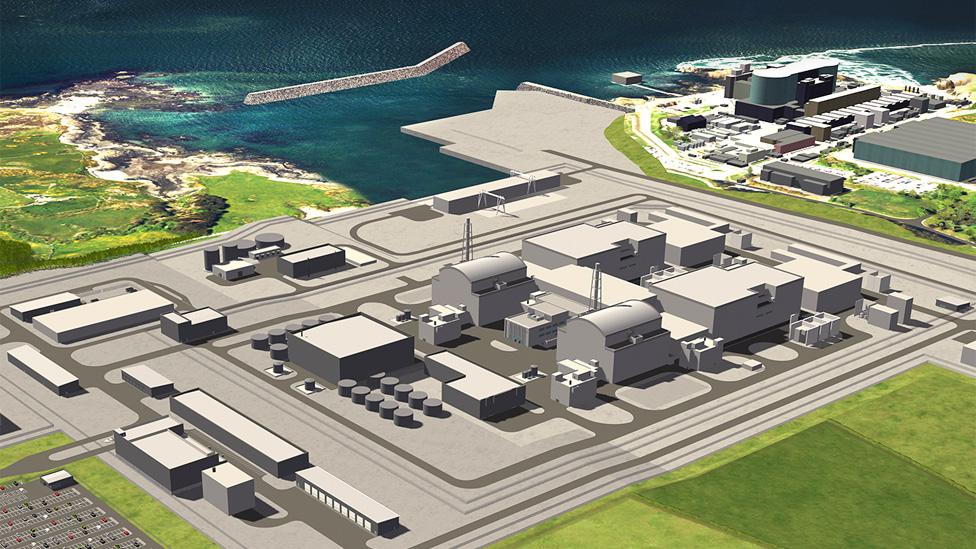Wylfa nuclear plans put protected seabirds 'at risk'
- Published
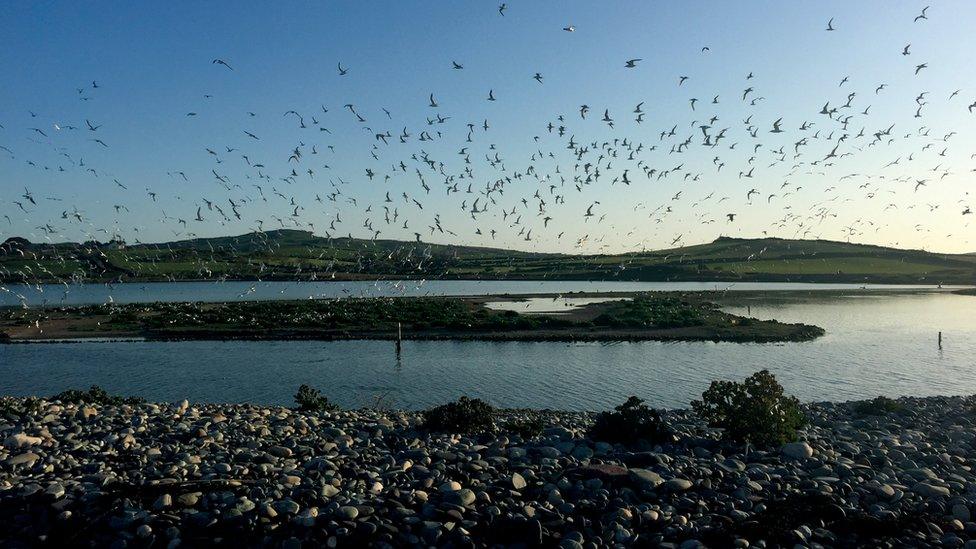
Cemlyn Bay is home to thousands of birds - especially terns
An internationally important seabird nesting site could be threatened by plans to build a nuclear power station, conservationists have claimed.
Construction of Wylfa Newydd on Anglesey could also damage a protected wetland habit, when 4,000 workers are sited near the location.
The North Wales Wildlife Trust said it now plans to challenge the proposals during the official planning process.
Horizon Nuclear Power said its aim was to minimise environmental concerns.
But the wildlife trust argued that the nuclear power plant project could risk permanent changes to environment at the reserve it operates next to Wylfa.
It has maintained the Cemlyn Bay nature reserve for nearly 50 years, and it is home to the only colony of nesting sandwich tern in Wales - with a population of at least 1,000 birds.
The bay is a Special Area of Conservation, external in Wales, with a unique shingle ridge that acts as a barrier between the open sea and a lagoon behind it.
It was constructed in the 1930s by the pioneering Welsh aviator Cpt Vivian Hewitt, external.
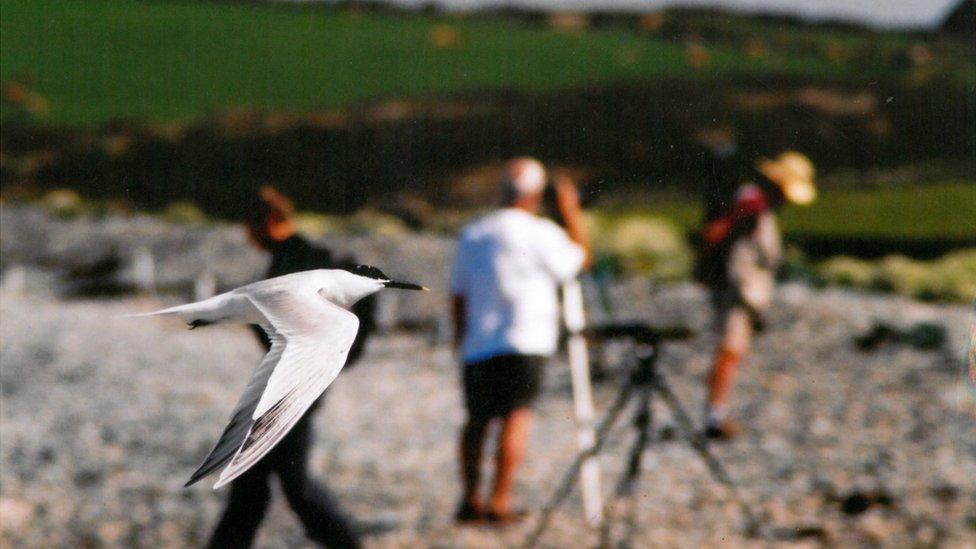
The bay is the only place in Wales where sandwich terns nest
Environmentalists examining Horizon's plans for a new deep harbour nearby during construction said it could spell catastrophe.
"There could be changes to the coastal currents by putting a 500m breakwater there," explained biodiversity planning officer Teresa Hughes, who is advising the North Wales Wildlife Trust (NWWT).
"It could push storm water over the ridge, breaching the dam, damaging it and washing it away.
"That is an impact with long-term consequences."
The claim is disputed by Horizon in documents it has submitted to the UK Planning Inspectorate, external, in its bid to get the green-light to build Wylfa Newydd.
The firm insists there would be "no adverse effects" on the lagoon.
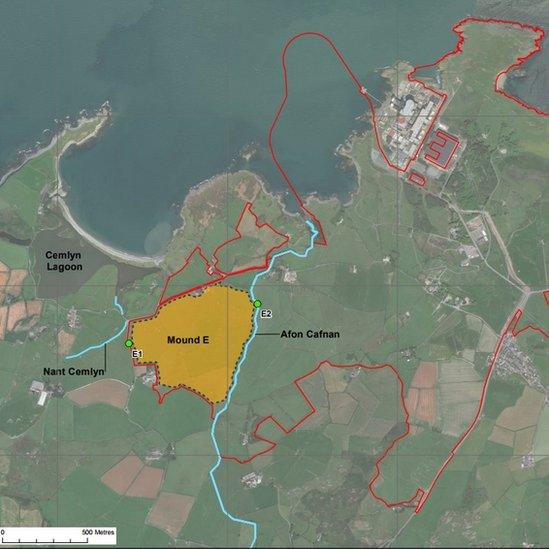
Red lines mark the Wylfa Newydd development site - with Cemlyn Bay to the west
Objections have also been raised about the decision to site a campus to accommodate about 4,000 workers during the 10-year construction on the edge of a site of special scientific interest.
NWWT said the area known as Tre'r Goff was typical of fenland only found on Anglesey, and supported rare plants, fungi, reptiles and small mammals.
"It is a really important area for this type of habitat," said the trust's Ms Hughes.
She said building just 20m (66ft) from the site would effect water tables and the viability of the wetland.
"We will be questioning the way in which the selection of this site from amongst other alternatives has been undertaken and why a less environmentally damaging and more beneficial option to the Island's community was not pursued," she added.
The trust said it would now register as an interested party with the Planning Inspectorate to raise its objections officially.
The inspectorate announced last month that it was officially accepting the 'developing consent' application by Horizon Nuclear, which is the detailed planning process for projects deemed to be of UK national importance.
A pre-examination inquiry process will now last for about 18 months, before moving to a final six-month examination stage, after which time recommendations will be made to the UK government.
Confirming it would be registering as an interested party the trust said it had "worked hard to advocate for changes to the proposals" but now the "real environmental consequences have become starkly apparent".
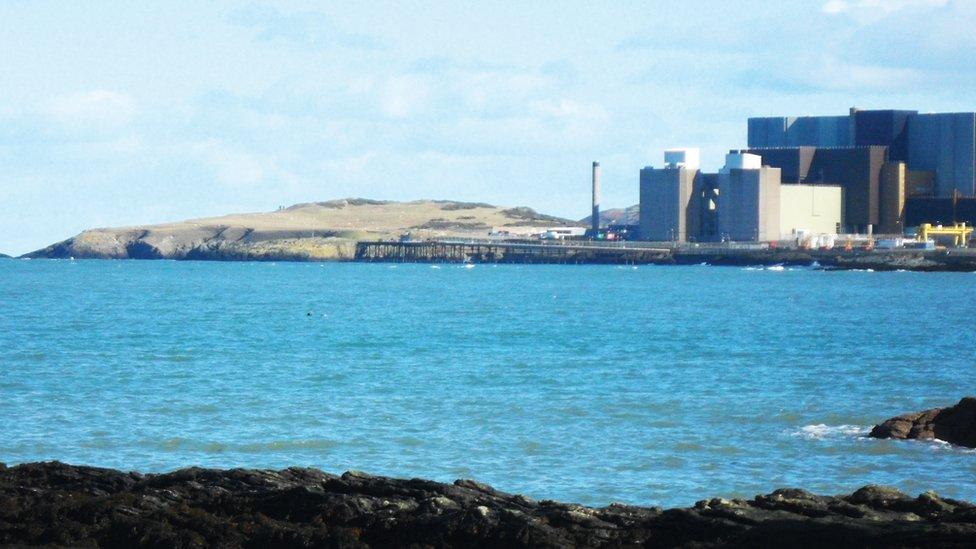
The view across the bay to the former Wylfa plant, which is being decommissioned
Responding to the trust's claims, a spokesman for Horizon Nuclear Power said it been working for "several years" with the body, and with several other environmental organisations as it developed its proposals.
Horizon said it was "proud" to be a platinum member of the wildlife trust.
"Our aim is always to minimise and mitigate any environmental impacts we may have, especially during construction, and the landscape will be managed for the benefit of wildlife, to achieve a net increase in biodiversity across Horizon's estate."
The company, which is owned by the Japanese giant Hitachi, said it had been working to improve the condition of sites such as Tre'r Goff, which had previously been "sub-optimal".
"We are also working with the North Wales Wildlife Trust, and other local organisations, on a number of additional ecological projects and we look forward to this positive engagement continuing into the future," added the company.
- Published4 June 2018
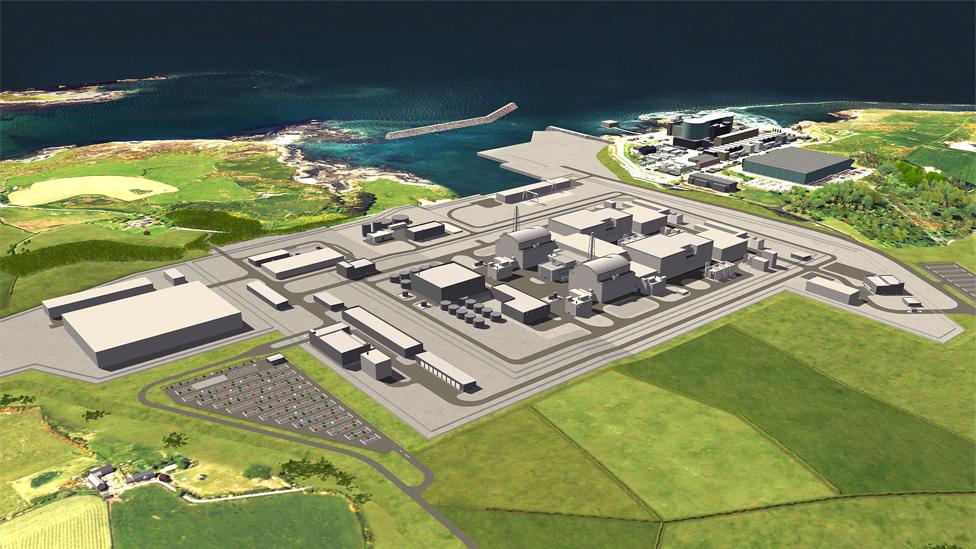
- Published5 June 2018

- Published9 April 2018
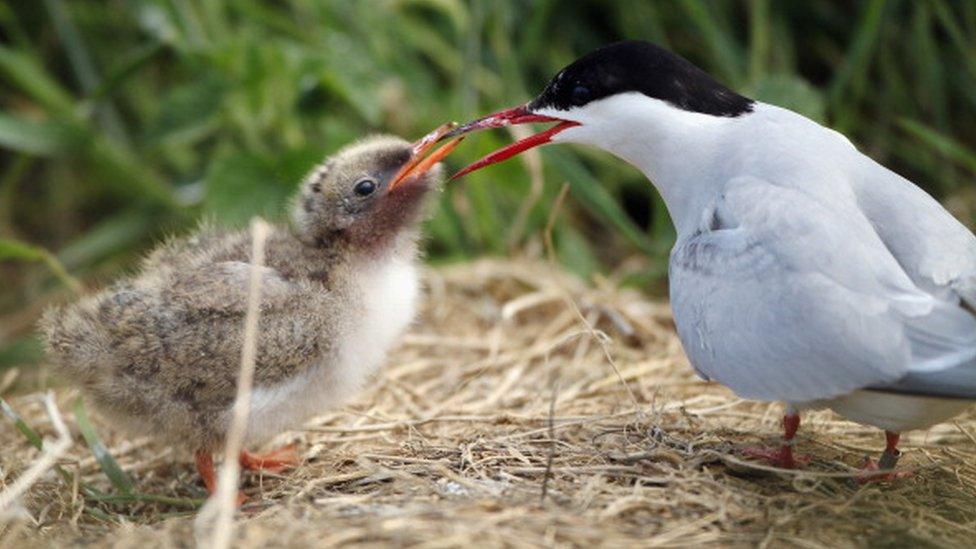
- Published16 January 2018
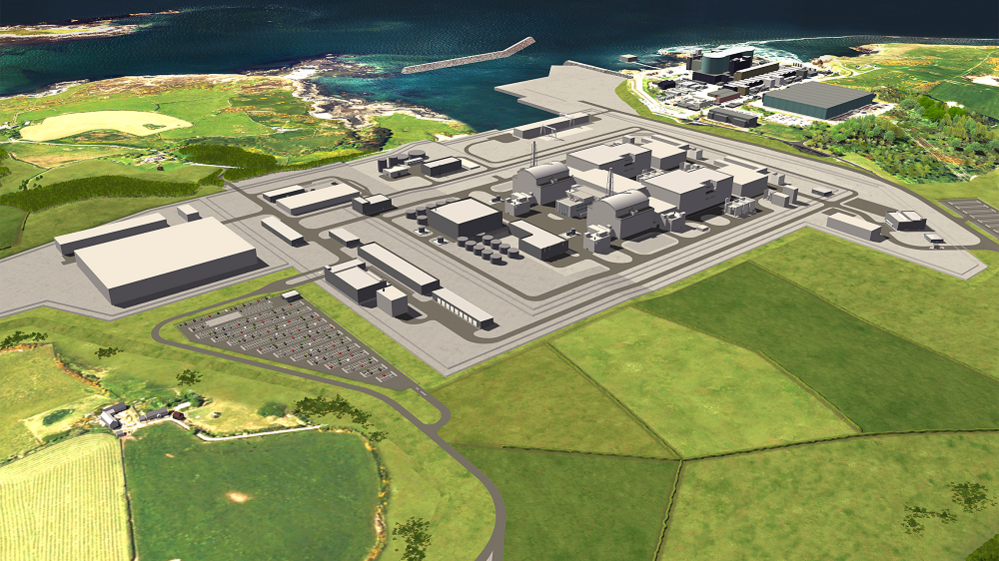
- Published6 July 2017
